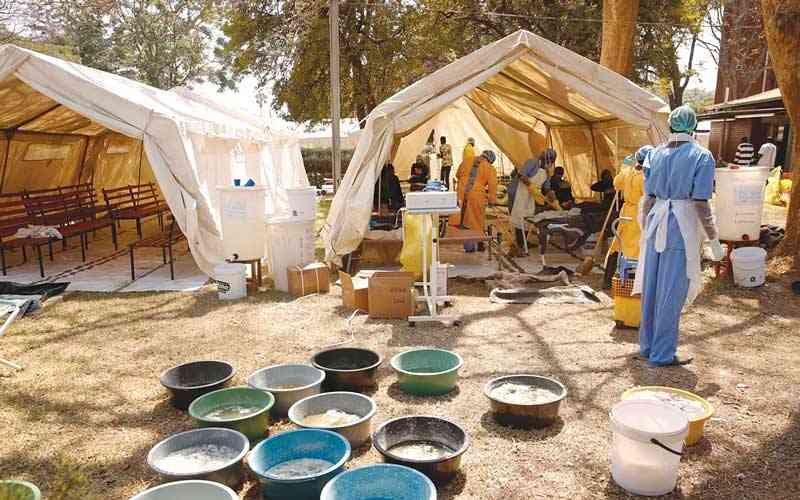
LAST week, a South African health official widely known for speaking out her mind, returned to hog the limelight when she blasted African leaders for shunning their own healthcare facilities in favour of five-star services in foreign lands.
Phophi Ramathuba told a health indaba in South Africa that it is now the norm for “African leaders and top politicians to seek medical treatment overseas, especially in Europe, the United States and China, while their poorly-funded health systems limp from crisis to crisis”.
She hit the nail on the head.
Closer home, Zimbabwe’s health delivery system has, indeed, limped from crisis to crisis, worsened by a brain drain as the country continues to lose key health personnel.
It boggles the mind why many African leaders fail to understand the simple fact that an unhealthy nation translates to an unhealthy economy.
Africa’s health sector should be a key priority among its leaders to a point where heads should roll if they to fail to get satisfactory treatment at their local hospitals and clinics.
But heads have never rolled. It will never happen as lomg as governments and their leaders are chiefly to blame for the rundown state of Africa’s health facilities.
When Vice-President Constantino Chiwenga doubled up as Health minister for the past five years, many thought that he would drastically transform the sector into one of the country’s most vibrant given that he was saved in China from certain death had he been attended to at one of the local public hospitals.
- Zim headed for a political dead heat in 2023
- Record breaker Mpofu revisits difficult upbringing
- Tendo Electronics eyes Africa after TelOne deal
- Record breaker Mpofu revisits difficult upbringing
Keep Reading
But, alas, the health sector has plunged deeper and deeper into the doldrums under his very nose. Health personnel have been hounded out of the country in search of greener pastures abroad due to poor remuneration and appalling working conditions.
Zimbabwe’s pathetic health delivery system has reached such low depths that even the World Health Organisation was forced to red-list the country as being among African nations with critical health workforce shortages.
And Ramathuba is absolutely right that the crux of the matter is that Africa’s national leaders and top political figures are not appreciating their own health facilities, which has led to them being rundown. If at all they cared about their health facilities and systems, they would have upgraded them to such levels that they would not be ashamed to be treated locally.
If truth be told, the state of most of African health facilities is ample testament to the monumental failure by our leaders to deliver on perennial promises on such basic needs as hospitals and clinics where simple drugs like painkillers and bandages can be accessed.
The state our Africa’s health delivery system is an embarrassment not only to our leaders, but to us ordinary citizens who are electing these leaders.








